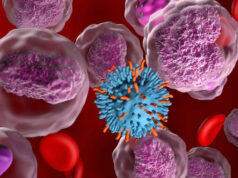
Recent research has shed light on the genetic connections among eight major psychiatric disorders, revealing common genetic roots that may pave the way for new therapeutic approaches. The disorders identified in this study include autism spectrum disorder, attention-deficit/hyperactivity disorder (ADHD), schizophrenia, bipolar disorder, major depressive disorder, Tourette syndrome, obsessive-compulsive disorder (OCD), and anorexia nervosa.
Key Genetic Discoveries
Scientists have identified 136 genetic “hot spots” linked to these conditions, with 109 of these hot spots shared across multiple disorders. This discovery underscores the interconnected nature of these mental health conditions at the genetic level. By analyzing 17,841 genetic variants found within these hotspots, researchers identified 683 variants that play a crucial role in regulating gene activity.
Variant Classification
The study categorized the genetic variants into two distinct groups:
- Pleiotropic Variants: These affect multiple psychiatric disorders and are characterized by heightened activity and sensitivity during brain development. They influence neurodevelopmental processes that may contribute to symptoms across a range of conditions.
- Disorder-Specific Variants: These are linked to a single disorder and provide insights into the unique biological pathways associated with individual conditions.
Implications for Brain Development
The heightened activity of pleiotropic variants during brain development suggests that they play a significant role in shaping neurological pathways that could lead to diverse psychiatric symptoms. This finding highlights the importance of early developmental stages in understanding mental health conditions.
Toward Targeted Treatments
Understanding the shared genetic factors among these disorders holds the potential for breakthroughs in treatment. By targeting common genetic pathways, scientists and medical professionals may develop therapies that address multiple conditions simultaneously, improving outcomes for individuals with comorbid psychiatric disorders.
Conclusion
The identification of shared genetic factors among eight psychiatric disorders marks a significant step forward in understanding the biological underpinnings of mental health conditions. Continued research in this field offers hope for more effective, targeted treatments that could benefit millions of individuals living with these challenging disorders.



